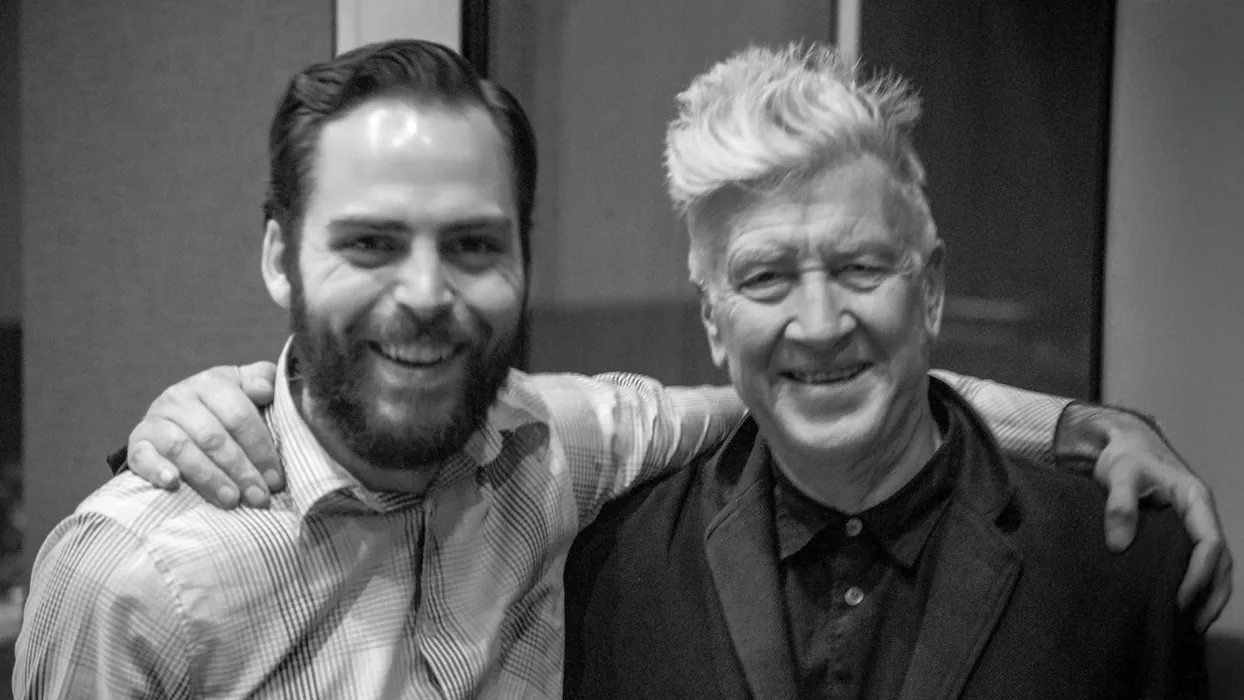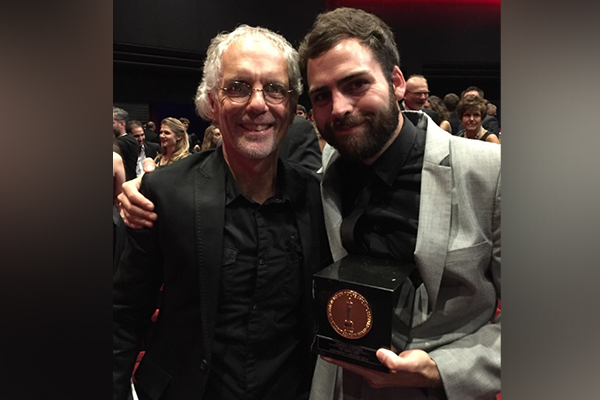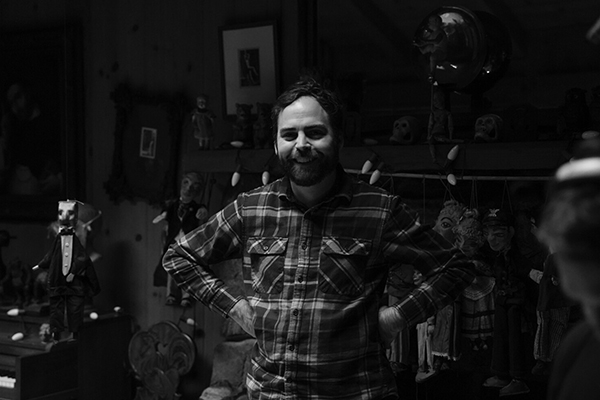Alan Llavore | Office of Strategic Communication | 909-537-5007 | allavore@csusb.edu


Cuban-American filmmaker and CSUSB alumnus Johnny Coffeen is preparing to debut his first feature-length film, “The Avalanche.” The romantic horror story, inspired by a nightmare he once had, follows two exes trapped in a mysterious house buried under snow due to an avalanche. Coffeen said the idea struck him so vividly that he wrote it down immediately — an instinct that would later shape the entire film.
The project took on added meaning during production, when Coffeen learned of the passing of esteemed filmmaker David Lynch, who “has been in my DNA since day one of my filmmaking career,” he said. “I first watched ‘Eraserhead’ and ‘Twin Peaks’ around the same time in 2008 when I was a student at CSUSB. My first student films were clearly influenced by his use of sound design and surreal imagery. I was lucky enough to attend his short-lived film school (MUM’s David Lynch Graduate School of Cinematic Arts) in 2015.”
That surrealist influence is also reflected in Coffeen’s process. For “The Avalanche,” he collaborated with respected Canadian actress Alex Essoe and award-winning actor Lou Taylor Pucci, inviting them into an unconventional rehearsal process that gave the actors creative freedom rarely experienced on film sets. “(They) were both very open to my rehearsal method, which focused on rewriting the dialogue of the film. This approach allowed them to ask questions and get deeper into their characters while I simultaneously got a stronger script out of the process,” he said.

Coffeen’s road to directing was grounded in both education and experience. Early work as an assistant editor on “Short Term 12,” the SXSW Grand Jury Prize-winning film, combined with his training at CSUSB, gave him a perspective that encouraged blending art-house impulses with more traditional narrative techniques.
“My early films were very different from the feature films I was writing,” he said. “Stop-motion animation and silent filmmaking techniques using heavy dream logic were much different than the more straightforward features I was writing. Over the years, I've found a way to successfully meld my filmmaking impulses with more accessible storytelling.”

Recognition for his unconventional approach came in 2016, when his master’s thesis short film, “The Swan Girl,” won a Student Academy Award. According to Coffeen, the honor, awarded to a project that was deeply experimental, gave him and his collaborators a surge of validation at a critical point in their careers.
Coffeen credits his formative filmmaking years at CSUSB, where courses and mentorship — particularly from Rod Metts, associate professor of communication and media — helped sharpen his eye and deepen his understanding of the craft.
“Professor Metts gave me a strong foundation for filmmaking while I was a student at CSUSB,” said Coffeen. “This experience changed the way I watched and studied films, and I’m forever grateful to him.”
“I’ve had the pleasure of watching Mr. Coffeen develop his vision over the course of many years,” said Metts. “It’s been a thrill to witness his many successes, and he’s done it without sacrificing, or compromising his vision of what film can be. He is a true independent filmmaker — succeeding on his own terms — taking risks, maintaining artistic integrity, keeping all the outside noise at bay, finding ways to get his films made.”

Today, Coffeen balances filmmaking with teaching as a lecturer in CSUSB’s Department of Communication and Media. His goal, he said, is to pass on his passion for cinema and help students cultivate their own voices.
“I love working at CSUSB. I decided on day one to be myself and share my immense love for cinema, and so far, the reception I’ve gotten over the years has been good,” he said. “It’s been moving to see students continue with their filmmaking beyond graduation.”
For Coffeen, the most important lesson he shares with students is perseverance. “I started my career alongside others I felt were even more talented than me, but they gave up after a hard year or two. The only thing separating you from everyone else is the fact that you don’t let rejection stop you,” he said.
With “The Avalanche” preparing to enter the film festival circuit this winter, Coffeen is already looking ahead. He has a backlog of scripts developed over the past decade and is eager to continue creating films that merge the surreal with the accessible. And whether on set or in the classroom, his message remains the same: stay true to your vision and “keep going.’
For updates on “The Avalanche” and Coffeen’s upcoming projects, visit his website.